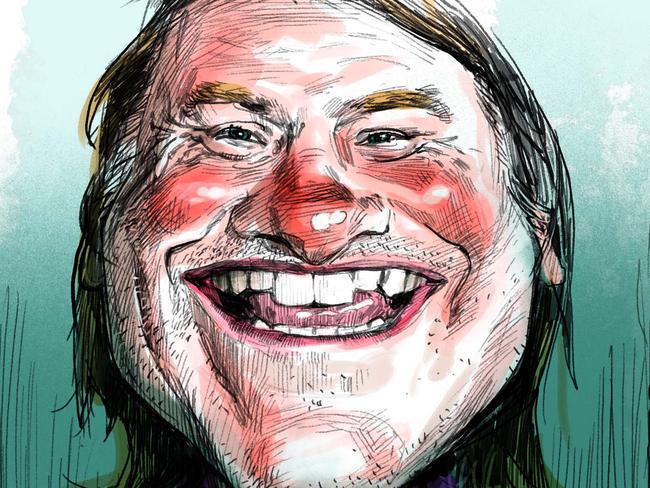The art of the deal: Radek Sali, former chief executive, Swisse
All Radek Sali wanted to do after pulling off the sale of vitamin group Swisse in 2015 was head home for his wife’s chicken soup.

What made the $1.67 billion sale of vitamin group Swisse in September 2015 so stunning was that Radek Sali had asked for a valuation of the company, a seller of vitamins and health-enhancing products, only nine months earlier and was told it was worth $100 million at best.
He and the other two major shareholders, the Ring and Saba families, had decided to seek an exit from Swisse, and while $100 million sounded a reasonable price, it came at a time when the company owed Goldman Sachs $70 million.
Sali was in just as deep. “I personally had a $15 million debt and I would have been bankrupt if we’d taken an offer at that price,” he says. “I was a goner.”
The company was languishing thanks to a combination of chasing big markets overseas and trying to sell too much product, too quickly, at home. Its board, led by executive chair Trevor O’Hoy, and management were forced to make some tough decisions around costs and dump ambitions for the US market. But in the end it was Swisse’s determination to exploit the Chinese craze for vitamins that turned around its fortunes. The “daigou” phenomenon that swept Australia saw locally based Chinese students, tourists and the diaspora buying up huge amounts of product to send home.
By late 2015 Swisse was in great shape and most of the company – now valued at $1.67 billion – was sold to the Hong Kong-listed Biostime (now Health & Happiness Global).
Sali was exhausted and craved some normality, as he explains to The Deal.
“My wife makes an amazing chicken soup,” he says. “I think that is the indication as to how spent I was, and that I wanted to go back to the simple things in life – because life had become somewhat complicated for quite some time there. It was the enormity of what we had achieved and where we had gone, and the wear it had taken on me personally.”
But the Biostime deal kept him locked into Swisse for 15 months. It was only then that he and other shareholders cashed in their stock. By that time Swisse was valued at more than $1.7 billion. It had been a spectacular ride, but one that had teetered on the brink several times. Two years later, Sali is still feeling the effects.
Sali, 41, had joined Swisse in 2008 as its chief executive. The firm was started in a small Melbourne warehouse in 1969 by Kevin Ring after a trip to Switzerland to learn about natural medicine. His first product was pollen tablets, and the company became more prominent under the stewardship of Michael Saba from 2000 to 2007.
‘Like so many Australian firms at the time, Swisse wanted to break into the Chinese market.’
When Sali took charge, Swisse really began hitting its straps. A big marketing push using athletes, television and movie stars was ramped up, sales grew rapidly across chains such as Chemist Warehouse, and Swisse started looking overseas for even more opportunities. Its owners even asked JP Morgan to explore sales options but were unable to find a suitable deal.
In 2010, like so many Australian firms at the time, Swisse wanted to break into the Chinese market. Among the companies it spoke to about undertaking a joint venture was Biostime, which ultimately decided the timing wasn’t right.
Sali instead looked to the US, while also ramping up the selling of Swisse vitamins in Woolworths and Coles in Australia. It would prove an almost disastrous combination.
While retailers in the US were enthusiastic, and Swisse was to employ celebrities such as Ellen DeGeneres and Nicole Kidman to promote the vitamins, Sali was doing too much on too many flanks.
“We had an exceptional team and great culture, but we were stretching ourselves too far,” he says. “So all of a sudden we were overspending in the US and overspending on the cost of sales in Australia. We had to look inward and create a turnaround, and make some tough decisions like closing down in the US.”
It was a costly decision. Sali returned to Australia full-time and licked his wounds, looking for a way out of the financial hole Swisse was in, even if the company was still spending big on advertising. In sheer desperation, Sali would pore through monthly sales data, looking for anything. Then his national field sales manager told him about the Chinese phenomenon. “There were pockets of product being sold in significant numbers in heavily Chinese-populated areas,” says Sali. “We pulled up the numbers in these areas and we were seeing 20 times the sales going through these stores as elsewhere. Our global marketing was exciting a global audience, but in our own backyard. We had to focus on it. We called it Project Gold.
“We got a team that was just focused on this, separate from our usual sales team. They created deeper relationships with the retailer that presented with these areas. We gave them a whole lot of point of sale material, which was different from what we had usually done. It would carry our usual ambassadors but with Mandarin writing, or we had brochures in Mandarin.
‘No one knew about Biostime’s involvement until it was announced publicly as the winner six months later.’
“We also did promotions that were in line with Chinese shopping promotions. We started that a year before everyone, all as a result of sheer desperation when we had all that debt.”
Sales skyrocketed and profits began pouring in: Swisse’s pre-tax profits would reach $120 million in 2015 and its owners revisited their sale option.
The company had already raised $70 million in debt financing from Goldman Sachs – Sali still has the weighty “trophy” the bankers awarded him to place on his desk as a daily reminder – and it appointed Goldman Sachs to run the sales process that began in March 2015.
Sali says that competition was hot, with up to 20 buyers from Asia showing keen interest. As it got towards the end, two buyers emerged publicly: a private equity firm and a Chinese government owned organisation. No one knew about Biostime’s involvement until it was announced publicly as the winner six months later.
But there was almost a last-minute hitch for Sali.
“It was down to signing the contracts and I suddenly got this message, after saying that I would be happy to stick around for a year or two, that said I had to agree to stay for 15 months or I’d be sued for $US100 million.”
Not surprisingly, Sali stayed. After the chicken soup, he says, he worked tirelessly for the rest of his stint, ensuring the business was in its best possible shape before his eventual full exit. Pre-tax profit doubled and H&H’s (Biostime) share price is now three times higher than at the time of the original deal.
By the end, Sali was exhausted.
“I remember seeing my doctor for a health check and he said ‘I would be very worried about you if you were continuing in that role’. I was spent from what was a very significant commitment of my time. I was doing two weeks of every month going to China and we had to be very match fit.”
Since leaving Swisse, Sali has ploughed his proceeds into his own investment firm, Light Warrior. It has investments in 12 start-ups or private companies, and while he is not as hands-on, Sali says he has been consciously having a “slow slowdown” from the highs of Swisse.
“A lot of people said to me the last thing you’d want is nothing to do when you finish. You don’t want no emails coming through, because you were operating at such a level.”


